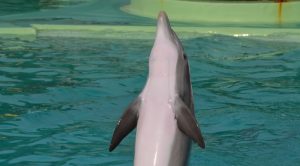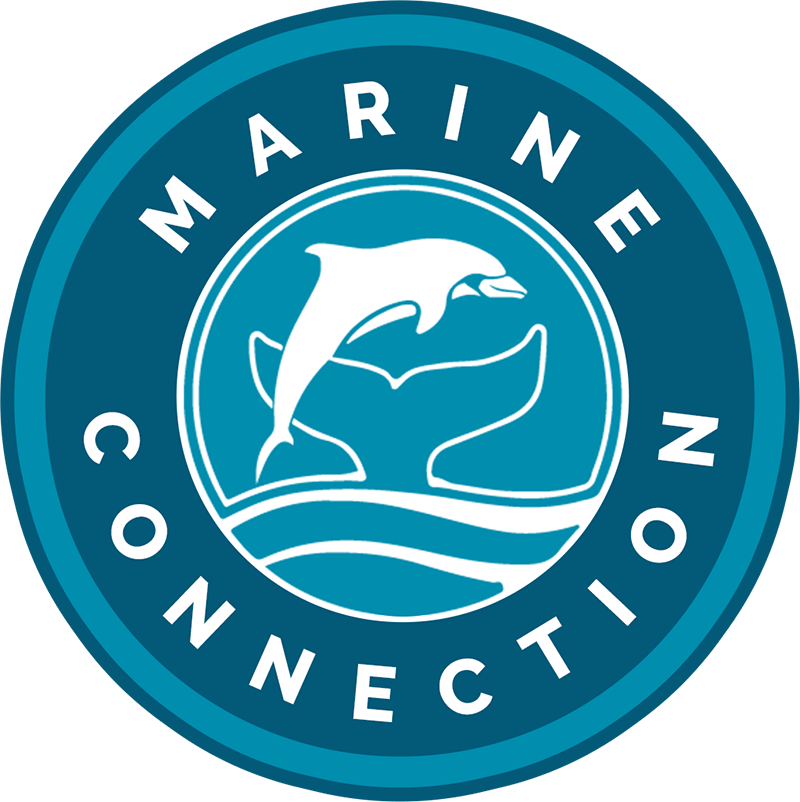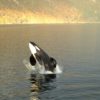 The French Ministry of the Environment are currently considering a draft order to update current regulations, passed in 1981, to improve standards for dolphinaria in France. They are inviting public comment by 1 March, and we need your help.
The French Ministry of the Environment are currently considering a draft order to update current regulations, passed in 1981, to improve standards for dolphinaria in France. They are inviting public comment by 1 March, and we need your help.
We, and colleagues in France, believe that the proposed regulation changes are not sufficiently stringent as to be rigorously binding to help phase out marine parks in France, therefore your comments are crucial. All comments to the Ministry should be submitted in French and we have included relevant text (below) which you can simply copy and paste (an English translation has also been provided for information only).
Please add your support, thank you.
Photo Credit: One Voice
Please cut and paste text below as your comment on the Ministry website (Click on the green Deposer Votre Commentaire button)
Ce projet d’arrêté ne tient pas compte des dernières avancées de la science et de l’éthologie sur les besoins fondamentaux des dauphins et leur capacité à éprouver du stress et de l’angoisse. Il convient de rappeler que les dauphins sont des animaux sauvages qu’ils soient ou non nés captifs et que leurs besoins restent identiques.
En aucun cas ces besoins ne peuvent être satisfaits en captivité et encore moins dans des bassins de béton: qui de nager jusqu’à 160 kilomètres par jour et plonger jusqu’à 60 mètres de profondeur. Le fait de mettre en contact des cétacés qui n’ont rien en commun et qui parfois proviennent de différentes régions ou n’appartiennent pas à la même espèce, peut interférer sur la dynamique de groupe et conduire à des attaques de dominance, des blessures, des maladies, entraînant parfois la mort des individus (Waples & Gales, 2002). Le programme des échanges et de reproduction des dauphins est totalement contraire à leur bien être.
De plus en plus de pays et de sociétés du divertissement prennent conscience de cette réalité et interdissent les delphinariums sur leur sol pour les uns et pour les autres abandonnent ces spectacles (comme l’aquarium de Baltimore ou Sea world avec la reproduction des orques) La France en soutenant de telles exhibitions porte une atteinte indirecte à la biodiversité qui fait partie tout comme ces animaux du patrimoine commun de la nation.
En tout état de cause ces activités sont illégales car contraires à l’article L 214-1 du Code rural de la pêche maritime qui dispose que les animaux doivent être placés par leur propriétaire dans des conditions compatibles avec les impératifs biologiques de leur espèce. Enfin cet arrêté souffre de nombreuses imprécisions et ne prévoit aucune sanction autres que celle déjà existantes dans le code de l’environnement le privant ainsi de toute efficacité. C’est la raison pour laquelle je demande à ce que cet arrêté soit modifié et qu’il soit mis fin à la captivité de tous les mammifères marins en France.
English Translation for Information Only
I am writing to you in relation to draft plans to update the regulations for the keeping of dolphins in captivity in France. This draft does not take into account the latest advances in science and ethology on the basic needs of dolphins and their ability to experience stress and anxiety.
It should be remembered that dolphins are wild animals, whether or not they are born in captivity, and that their needs remain identical. In no case can these needs be met in captivity, let alone in concrete pools: in the wild they can swim up to 160 kilometres a day and dive to a depth of 60 meters. Cetaceans that have nothing in common and sometimes come from different regions or do not belong to the same species are often kept together. This can interfere with group dynamics and lead to dominance attacks, injuries, diseases, sometimes leading to the death of individuals (Waples & Gales, 2002). The captive dolphin exchange and reproduction program is totally contrary to their welfare.
More and more countries and entertainment companies are becoming aware of this reality and forbid the establishment of dolphinaria in their counntry. Other operators have stopped these shows altogether (such as the Baltimore Aquarium or SeaWorld who have stopped their orca reproduction programme.) By continuing to support such exhibits, France indirectly damages the bio-diversity that is part of these animals and the common heritage of the nation.
This type of activity also contravenes Article L 214-1 of the Rural Code of Maritime Fishing, which stipulates that animals must be placed by their owner under conditions compatible with the biological requirements of their species. Finally, this decree suffers from numerous inaccuracies and does not provide for any penalty other than that already existing in the environmental code – thus depriving it of all effectiveness. That is why I am asking that this order be amended and we see the end to marine mammals in captivity in France.



